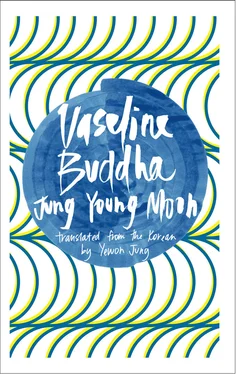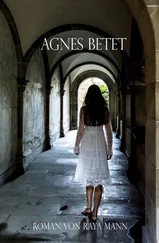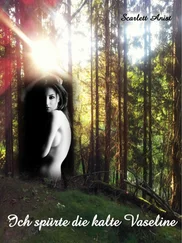Thinking about my childhood, I rolled up my trouser leg to show myself a very old scar on my knee, which I got by falling down from the owl tree when I was a boy, even as I thought that it wasn’t necessary to roll up my trouser leg like that, and thought somewhat absently about how far I had come from those days, and recalled some childhood memories that don’t easily leave once they’re recalled, and was sending them away with as much difficulty as possible, when a gentle breeze began to blow again, and a great distance away I saw something that looked like a flock of sheep moving very slowly, and the flock of sheep, which looked as if it were moving even more slowly because it was far away, was adding, perhaps unnecessarily, a new unity to the composition of nature that was already perfect in itself, and it seemed that the unity wouldn’t break even if a movement of something else were added to the scene, with a flock of birds appearing or something, so I posed the question, Is a perfect composition of nature something that can’t ever be broken by nature itself? but failed to obtain an answer, and so I thought that bagpipe music would be in harmony with the place, and that the place might have been the stage of the Hundred Years War, which continued on tediously between France and England long ago, and wondered if the soldiers played bagpipes even during the war, and if the enemies really fled in fright at the somewhat sad sound of bagpipes, even though bagpipes were originally played by the Scottish to frighten their enemies on battlefield. Bagpipes, whose inherent sound was plaintive, were often played at funerals for some reason, and I thought, Sometimes the sound is so plaintive that it sounds miserable.
And I thought that in the very forest where I was lying, feeling, even while lying down, the gentle breeze which came from the sea, with the Atlantic Ocean being somewhere to the west from where I was, though I didn’t know how far away it was, soldiers slept during the Hundred Years War, and that some soldiers might have thought of another war that was fought there, and some of them might have thought of a story that was passed down from the time when Roman soldiers were in rule there. And I thought about how tedious it must have been to be at war for a hundred years, and had the somewhat absurd thought that the people at the time continued on with the war for a hundred years so as not to return to life before the war because it had been so boring, or that the people of England and France, who had opened their eyes every morning for generations, failed to find anything else worth doing as they began the day. Or, I thought, perhaps they continued tediously on with the war for a hundred years because they wanted to see the end of a war, like the end of a story, but the war didn’t unfold as they expected and did not end easily, like a story that doesn’t easily end, and I thought that I may not be able to end this story easily either.
Perhaps the people went about their everyday lives even during the war that lasted a hundred years. They must have been faced with the everyday routine of fighting, and they must have begun the day, after digesting their breakfast, with a weapon in hand — for it must have been difficult to fight without even digesting what you ate, and if you did, you would’ve had to fight, clutching your side in pain. And they must have fought for a short stretch at a time, not long, since they wore heavy armor, which must have made it difficult to even just remain standing while wearing them, and fought with heavy weapons in hand, such as swords and spears and shields, and sat or lain down and taken a nap in the shade of a tree after fighting for a little while, or sang to ease their fatigue and the longing for a loved one with whom they had parted. For there must have been nothing like a song to ease their fatigue and longing. In the meantime, a flock of sheep must have watched from afar, with extreme interest, the people fighting to take possession of the scene of which they, the sheep, were a part, and then grown indifferent to the fight among the people, for sheep don’t stay interested in such things for long, and returned to grazing. And after repeating this several times, they must have become indifferent to the fight among the people and come to consider the war, which humans were waging without any regard to them, part of their everyday life. And in the meantime the field, which had been noisy with the sound of swords and spears clanging against each other, must have fallen silent as the soldiers, failing to resist drowsiness — for you can’t fight while trying to resist drowsiness — fell asleep. There’s probably nothing like a war, which makes its brutality so easily pervade everyday life, and becomes a part of ordinary life through repetition, that shows that it, too, can become a real part of everyday life, even though it’s considered the furthest thing from everyday life.
I began to fall asleep, thinking that there was something in the pastoral scene that had once been a ferocious battlefield, that kept me, who had come from a distant foreign land and was lying without stirring in a forest in the French countryside, whose exact location I didn’t even know, as if to hide from the world, from getting out of that state, and I thought that it would be all right if I fell asleep and never woke up. I also thought that it’s harder to refuse small invitations to death, which come to you like quiet passion at such peaceful moments, than to overcome moments of unspeakable pain.
And I also thought, as I always end up doing when I fall asleep in a forest like that, that there could be snakes there and I could get bitten by a snake, but a snake wouldn’t bite someone who was asleep, and wondered why I always thought about snakes when I fell asleep in a forest, but more than that, I thought that if I fell asleep, I could have a dream about the Hundred Years War in the middle of the battlefield where the war was fought. And I fell asleep, fancying that the clouds in the sky, which looked like a flock of sheep, were heading a flock of sheep on the field over which they cast a shadow, and feeling as if a long snake were gently climbing over my body, and thinking, What is that thing hanging from the tree, if not a leopard? though it was hardly likely that a leopard would be on a tree in a forest in a French countryside, feeling as if I were being buried snugly in the sand blown by the wind on a desert toward evening.
But when I woke up from a dream about chasing someone while being chased by someone else, a situation which, in dreams, makes everything seem drawn out and urgent at the same time, which ended with me entering a forest, and which I don’t remember in specific detail — I did remember, though, seeing crows floating on a pond and thinking how strange it was — it was peaceful all around, as if the war really had ended long ago, or as if a war had never taken place there. But I suddenly recalled, while still half asleep, that I once dreamt about a forest with a bed and a table with coffee cups on it, as if my house had been relocated. In the dream, in which all objects had, to a large or small extent, lost their original shape and size, I spooned up a little cloud that was hovering low above my head and tasted it, but there was no taste to it. But when I put the cloud in a cup of coffee, the coffee tasted good as if it had cream in it, and the cloud went very well with the coffee.
I thought that it would be nice if there were pots of plants and a mirror in the forest now. If there was a mirror, I could lean it against a tree and see my foot, for instance, in the mirror reflecting trees. And if I tilted the mirror at a certain angle, I’d be able to see my foot along with a cloud in the sky. I thought of several more scenes that would look well in a mirror in a forest, which included me sitting in a crimson velvet chair with an earwig or a green frog, as if we were indispensable to each other. The reason why I pictured something like that might have something to do with my recalling that at a certain point in history, people began to view the world through windows, and that at a certain point in the history of art, people began to paint by holding up an object to the mirror and reproducing the image reflected in the mirror. Objects, and sceneries, do not lose their essence by being in a frame, but are endowed with a new essence, and become clearly different from before.
Читать дальше












